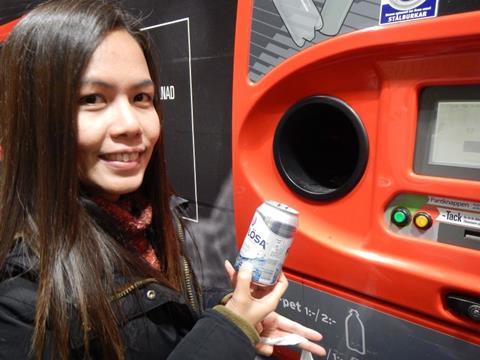
Whereas restaurants and cafes are forced to remain closed to guests throughout lockdowns in many countries across Europe, take-away and delivery services are booming as a side-effect of the coronavirus.
According to a current, representative survey by the WWF and the German Packaging Institute (dvi), a good 83 percent of Germans purchase take-away food and beverages or have them delivered. More than three quarters of all respondents would like to see sustainable packaging used for this purpose (78.5%) . Recyclable single-use containers for disposal through the “dual system” come top of the list of favourites with an approval rating of just over 50 percent (51.5%). Personal containers (31.6%) and deposit return containers from restaurants and bars (24%) come second and third respectively. Personal cans are particularly popular with women (35.4% vs. 27.9%). On the other hand, men are more likely than women to resort to throwaway containers (21.2% vs. 13.5%). All in all, 17.4 percent of those surveyed express a preference for throwaway single-use containers regardless of the material and their suitability for recycling. Another 13.8 percent claim not to care how their food and beverages are packed. These figures show that a clear majority are concerned about such issues and that they prefer more environmentally friendly alternatives.
The general willingness on the part of the population to participate in a deposit return scheme has moreover increased during the coronavirus pandemic. The proportion of people who would, in principle, consider returning more packaging in order to claim back a deposit went up by another five percent – to an impressive 85 percent – compared to a February 2020 survey. Among those who expressed such a willingness, a separate deposit refund system for all single-use beverage bottles and cans (irrespective of the contents) would be likely to command the greatest support (72.6%). A draft bill submitted by the German Federal Ministry for the Environment, which proposes to extend the obligation to charge a deposit to precisely this product group, consequently meets with widespread approval. Around 40 percent could also imagine a deposit return scheme for hygiene and personal care products (40.2%) as well as for detergents and cleaners (39.2%). Overall, women take a more open view of the topic and report greater acceptance than men of almost all of the available options. Fewer than eight percent of the total sample are opposed to an extension, either because they feel it is too unhygienic (7.8%) or because they regard it as too complicated (7.3%).
Dr. Martin Bethke, Executive Officer Markets & Business at WWF Germany: “The survey carried out by the WWF and the dvi reveals a positive trend among consumers. They pay attention to packaging and favour alternatives that are sustainable by comparison. Of course, we’d be happier still if even more people would choose to have food and beverages delivered in return & refill containers rather than recyclable single-use ones. And if those containers were actually returned afterwards, so that they could be reused over and over again. Only then could they genuinely be described as more sustainable. It’s now up to restaurants and cafes to offer more of their products in packaging of this kind or be more generous when it comes to accepting personal containers. At the same time, politicians should launch suitable initiatives to encourage people to switch to resource-friendly containers.
Kim Cheng, the dvi’s Managing Director, is pleased that “neither the pandemic nor the lockdown have succeeded in repressing the desire for more sustainability. People are willing to actively support more sustainable solutions and make a contribution to the circular economy, either by taking packaging to a reverse vending machine after use or by disposing of it in yellow recycling bags. Their decision as to which is the most environmentally friendly packaging is influenced by a number of different factors – from the choice of material through the use of energy, water and chemicals for cleaning to transport distances, volumes and weight. This is why it isn’t always easy to define what constitutes an environmental trailblazer – it depends on individual circumstances. However, one thing is sure: no matter whether it’s recyclable packaging, deposit return schemes or return & refill solutions we’re talking about, there’s something to be said for all of them, and none of them should replace recyclable packaging completely. Companies in the packaging industry are developing increasingly innovative solutions to deal with this problem.”













